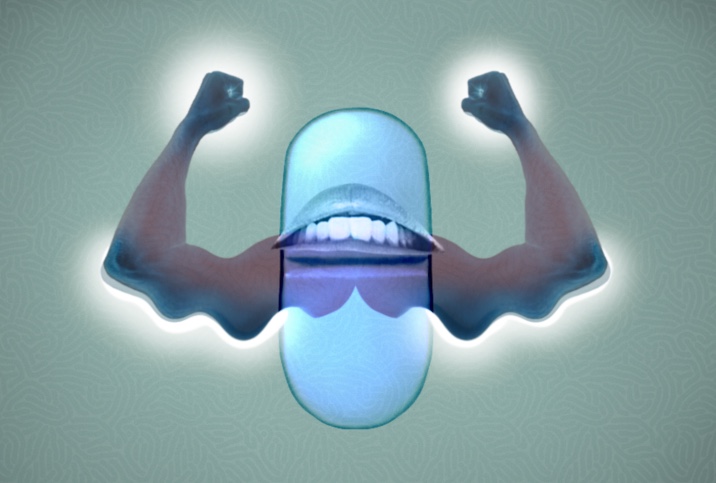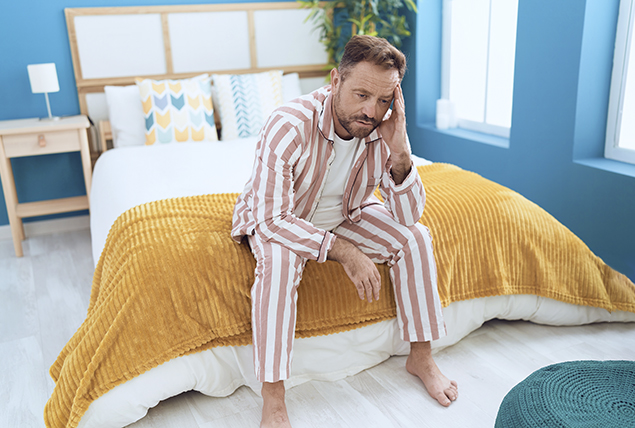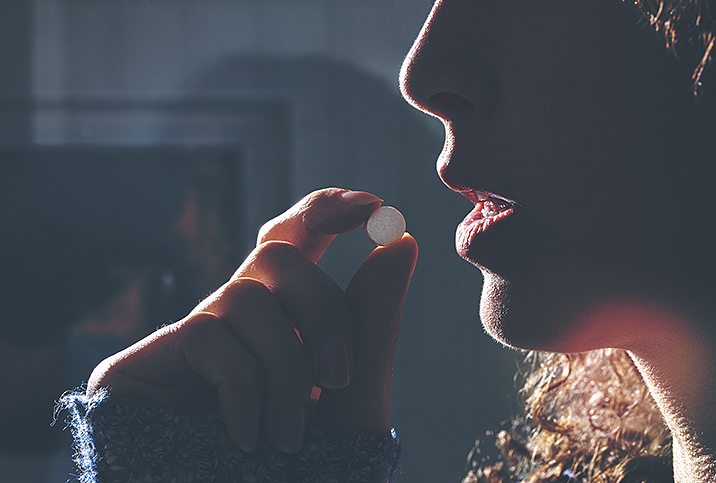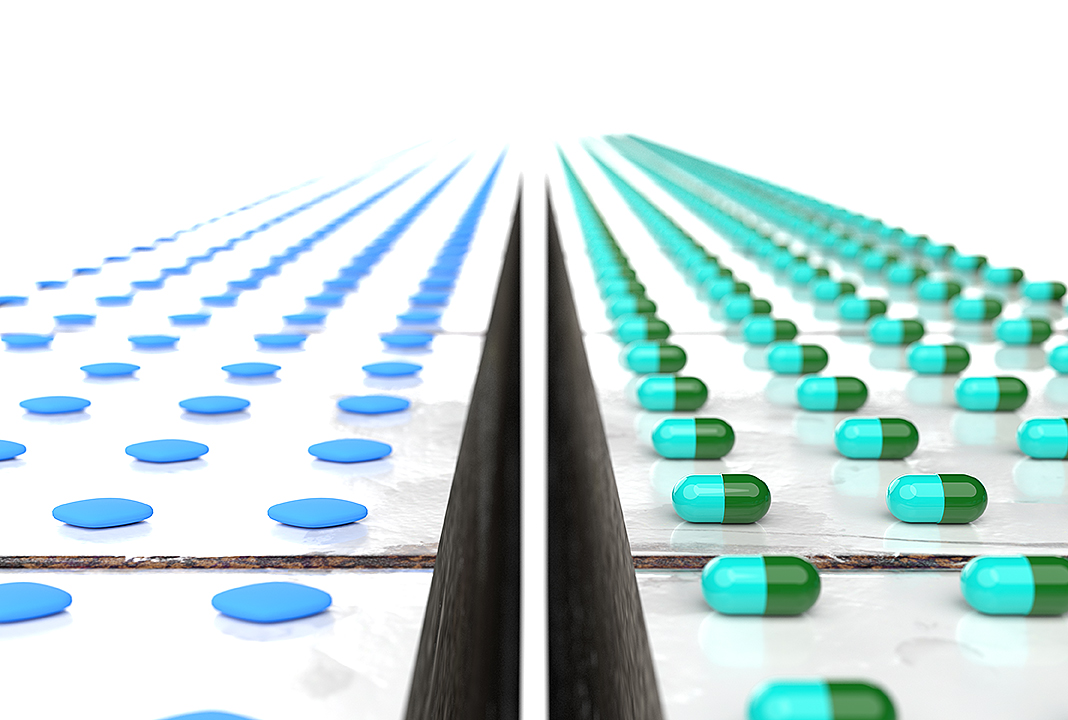Can Antidepressants Lower Testosterone?

Medications are useful for treating diseases and illnesses, but they often come with side effects that influence other parts of your health. Drugs prescribed to treat mental health complications are no different.
Antidepressants might help you manage your emotions and moods, but they also have potential downsides that can affect your sex life.
Sexual dysfunction is a common symptom of depression, and the use of antidepressants may add further adverse side effects. It's one of the main reasons patients stop taking them. Selective serotonin reuptake inhibitors (SSRIs) are the most regularly prescribed antidepressants, according to research published in the Journal of Clinical Psychopharmacology. SSRIs have consequences for arousal and orgasm that other mood-altering drugs used to address the dopamine, norepinephrine and melatonin systems don't, researchers added.
The report emphasized that finding mood disorder treatment medications that don't negatively affect sexual function could be beneficial in pharmacotherapy. They could potentially reduce noncompliance or the need to switch antidepressants and may decrease the need for further treatment.
How does depression affect sexual function?
Depression causes physical fatigue, low self-esteem and feelings of hopelessness—all symptoms that could contribute to sexual dysfunction. Mood disorders can also result in erectile dysfunction (ED) and difficulty achieving orgasms.
Sex organs are linked to the brain, as is sexual desire. When you're turned on, your brain sends a signal to increase blood flow to your penis, which triggers an erection.
Depression causes an imbalance of sex-related chemicals in the brain, which also results in decreased libido.
How do antidepressants work?
Antidepressants may boost the level of neurotransmitters, such as serotonin and noradrenaline, that are responsible for mood and emotions, according to the United Kingdom's National Health Service (NHS). Antidepressants can treat clinical depression, anxiety disorder, obsessive-compulsive disorder (OCD), post-traumatic stress disorder (PTSD) and some physical conditions such as chronic pain.
The NHS noted that mood-altering medications can usually treat the symptoms of depression but don't always address the cause. For this reason, antidepressants are prescribed in conjunction with therapy.
How do antidepressants affect testosterone production?
"Some SSRIs, a commonly used antidepressant, can disrupt the testosterone production pathway, thus causing low testosterone levels in men who take these medications. This can cause significant issues in terms of their quality of life, energy levels, mood, libido [and] exercise tolerance, just to name a few," said Justin Houman, M.D., a reproductive urologist and men's health specialist at Tower Urology in Los Angeles and the medical director for Bastion Health, an app-based telehealth platform for men.
The main impact appears to be felt at the testosterone synthesis level, Houman explained. Different antidepressants impact testosterone production differently.
Most clinical studies do not specifically measure circulating sex hormones in patients prescribed antidepressants. Some studies, though, have shown varying effects of antidepressants on CYP17, an enzyme essential to the production of androgens, according to Denise Asafu-Adjei, M.D., an assistant professor of urology and the medical director of male reproductive medicine at Loyola University Chicago Stritch School of Medicine.
"[Researchers in Europe] studied the six most commonly used SSRIs," Asafu-Adjei said. "All were found to lower testosterone levels, although the exact mechanisms of action for each drug were slightly different. Additionally, many antidepressants have shown increased estrogen levels, which affects the effect of testosterone."
How can you counteract the effects of antidepressants on sexual health?
The goal in this scenario is not to stop the antidepressants. Instead, doctors look for ways to support testosterone levels, Houman said.
Asafu-Adjei noted that men should see a urologist or an endocrinologist if their testosterone levels fall. They can discuss various treatment options to help determine the best course of action.
"The most common options for testosterone replacement therapy [TRT] include topical androgel, subcutaneous cypionate injections and long-acting testosterone pellets. Newer forms include oral testosterone pills and long-acting injections that last for two to three months," Houman said. "Also, there are options that stimulate a more natural production of testosterone, including oral clomiphene and injectable hCG, which will boost testosterone while preserving fertility."
Among the available antidepressants, mirtazapine, nefazodone, bupropion and vilazodone are less likely to have sexual side effects, according to Cleveland Clinic.
Taking the following steps can also help prevent sexual complications:
- Talk openly with your partner about your feelings, both mental and physical.
- Choose a healthy diet, exercise and maintain a healthy weight.
- Avoid smoking, alcohol and drugs, as they contribute to ED.
- Discuss your best options for antidepressants with your doctor.
Other effective therapies that can help combat depression include psychotherapy, acupuncture, exercise, yoga, and taking herbal or dietary supplements. Always talk to your doctor before starting any type of supplement.


















